
下载亿题库APP
联系电话:400-660-1360

下载亿题库APP
联系电话:400-660-1360

请谨慎保管和记忆你的密码,以免泄露和丢失

请谨慎保管和记忆你的密码,以免泄露和丢失

好的学习方法加试题的练习,考试才能事半功倍。下面帮考网就给大家分享一个ACCA考试《公司法与商法》试题,备考的小伙伴赶紧来练习练习吧。
Question:
In the context of payment for shares issued by a company, explain the meaning and legal effect of the following:
(a)capital maintenance;
(b)issuing shares at a premium;
(c)issuing shares at a discount.
Answer:
(a)Shareholders in limited liability companies enjoy the benefit of limited liability and usually cannot be required to pay more than the value of the shares they take in their company. However, that privilege is only extended to them on the basis that they fully subscribe to the company‘s capital. In turn, that capital is seen as a fund against which creditors can claim in the event of a dispute. Capital maintenance refers to the way in which the capital fund of limited liability companies can be used and, most essentially, reduced. The fundamental rule is that payments may not be improperly made out of capital to the detriment of the company‘s creditors. To that end, company law lays out rules as to what may be considered proper payment from capital and, in particular, establishes clear rules relating to the payment of dividends and the ways in which capital can be reduced.
(b)It is possible, and not at all uncommon, for a company to require prospective subscribers to pay more than the nominal value of the shares they subscribe for. This is especially the case when the market value of the existing shares are trading at above the nominal value. In such circumstances the shares are said to be issued at a premium, the premium being the value received over and above the nominal value of the shares. Section 610 CA 2006 provides that any such premium received must be placed in a share premium account. The premium obtained is regarded as equivalent to capital and, as such, there are limitations on how the fund can be used. Section 610 provides that the share premium account can be used for the following limited purposes:
(i)to write off the expenses, commission or discount incurred in any issue of the shares in question;
(ii)to pay up bonus shares to be allotted as fully paid to members.
Section 687 also allows for the share premium account to be used to finance the payment due for any premium due on the redemption of redeemable shares.
Applying the rules relating to capital maintenance, it follows that what the share premium account cannot be used for is to pay dividends to the shareholders. The rules relating to share premiums apply whether the issue is for cash or otherwise and so a share premium account can arise where shares are issued in exchange for property which is worth more than the par value of the shares (Shearer v Bercain Ltd (1980)). In the light of that case, relief from the strict application of the rules relating to premium was introduced in the case of certain company group reconstructions (s.611 CA 2006) and company mergers (s.612 CA 2006).
(c)It is a long-established rule that companies are not permitted to issue shares for a consideration which is less than the nominal value of the shares together with any premium due. The strictness of this rule may be seen inOoregum Gold Mining Co of India v Roper (1892). In that case the shares in the company, although nominally £1, were trading at 12·5p. In an honest attempt to refinance the company, new £1 preference shares were issued and credited with 75p already paid (note the purchasers of the shares were actually paying twice the market value of the ordinary shares). When, however, the company subsequently went into insolvent liquidation, the holders of the new shares were required to pay a further 75p. This common law rule is now given statutory effect in s.580 CA 2006. If a company does enter into a contract to issue shares at a discount, it will not be able to enforce this against the proposed allottee. However, anyone who takes shares without paying the full value, plus any premium due, is liable to pay the amount of the discount as unpaid share capital, together with interest at 5% (s.580(2)/CA 2006). Also any subsequent holder of such a share who was aware of the original underpayment will be liable to make good the shortfall (s.588 CA 2006).
以上是本次帮考网分享给大家的ACCA考试试题,备考的小伙伴抓紧时间练习一下吧。欲了解更多关于ACCA考试的试题,敬请关注帮考网!
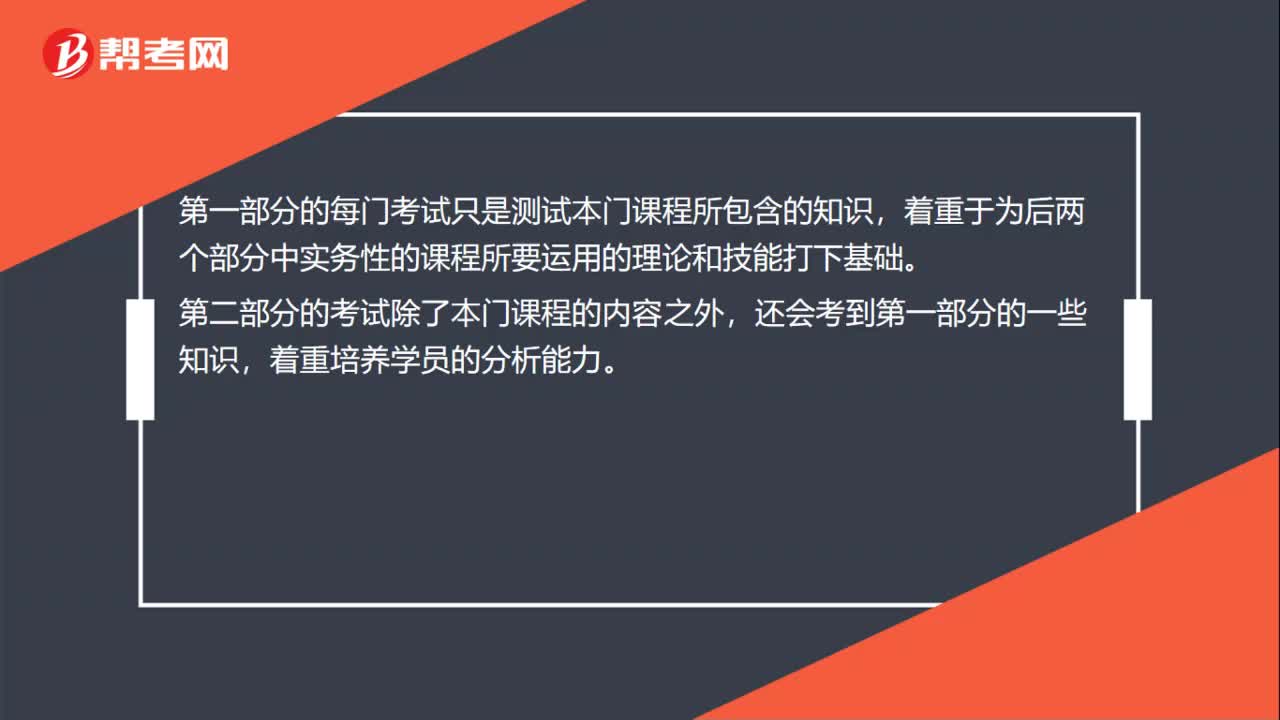 80
80ACCA考试难度大吗?:ACCA考试难度大吗?ACCA考试的难度是以英国大学学位考试的难度为标准,第一(f1-f3)、第二部分(f4-f9)的难度分别相当于学士学位高年级课程的考试难度,第三部分p阶段的考试相当于硕士学位最后阶段的考试。第一部分的每门考试只是测试本门课程所包含的知识,着重于为后两个部分中实务性的课程所要运用的理论和技能打下基础。第二部分的考试除了本门课程的内容之外。
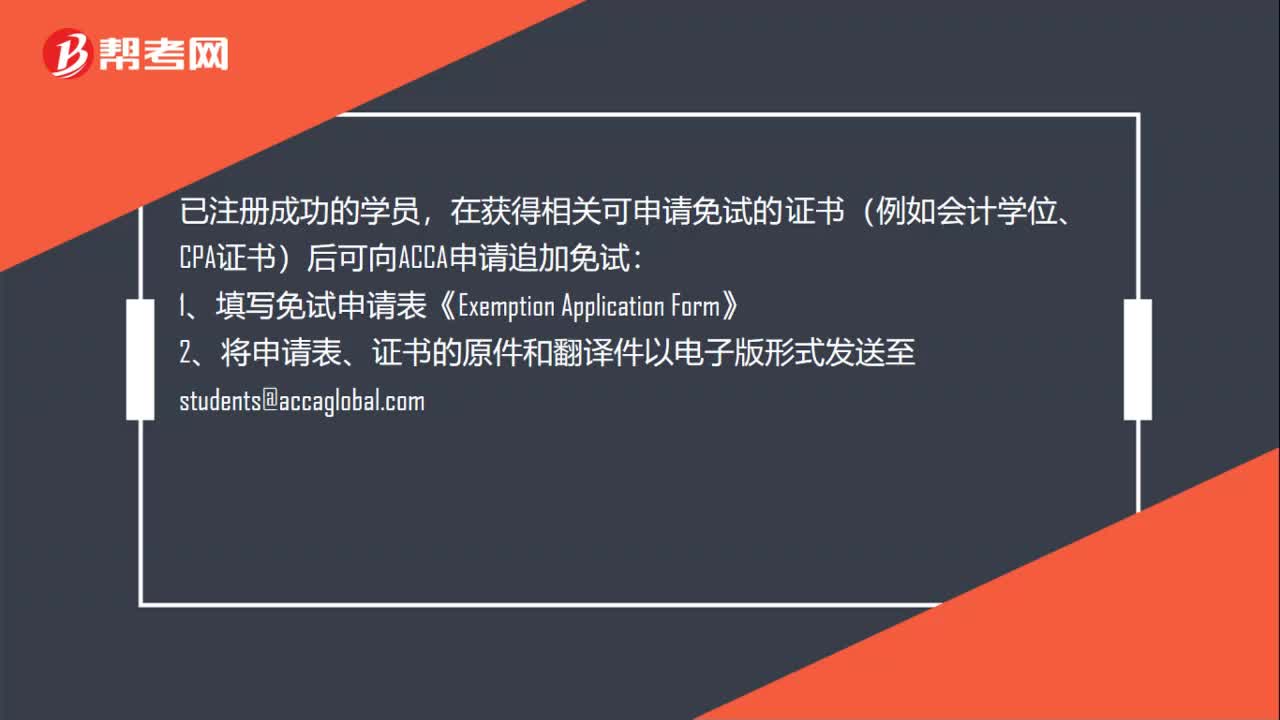 56
56ACCA考试怎么申请免考?:ACCA考试怎么申请免考?已注册成功的学员,在获得相关可申请免试的证书(例如会计学位、CPA证书)后可向ACCA申请追加免试:1、填写免试申请表《Exemption。2、将申请表、证书的原件和翻译件以电子版形式发送至students@accaglobal.com:3、请注意查收邮件或登录MYACCA学员账户查看免试信息,4、确认时间为5个月左右版;(例如,7月15日前提交申请12月考试生效
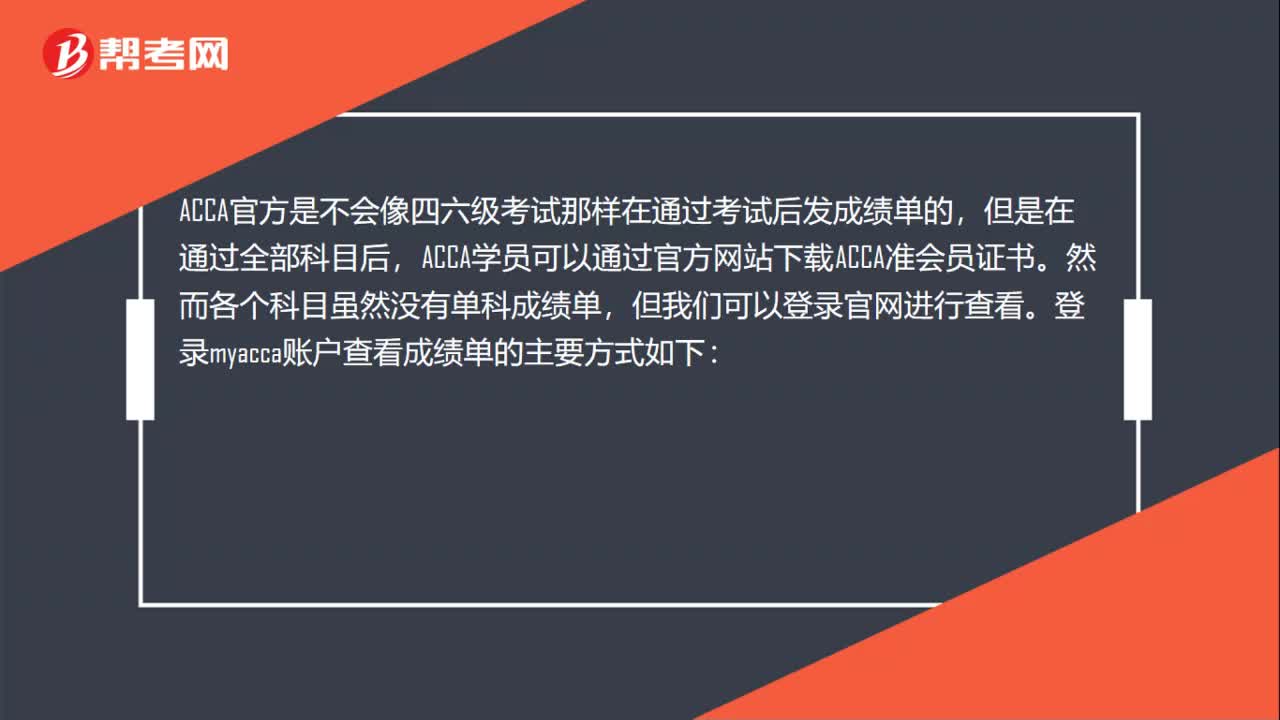 66
66ACCA考试有成绩单吗?:ACCA考试有成绩单吗?ACCA官方是不会像四六级考试那样在通过考试后发成绩单的,但是在通过全部科目后,ACCA学员可以通过官方网站下载ACCA准会员证书。然而各个科目虽然没有单科成绩单,但我们可以登录官网进行查看。登录myacca账户查看成绩单的主要方式如下:1、登陆ACCA官网accaglobal.com,进入学员个人页面;2、 输入个人的学员注册号码及密码后点击按钮“login”
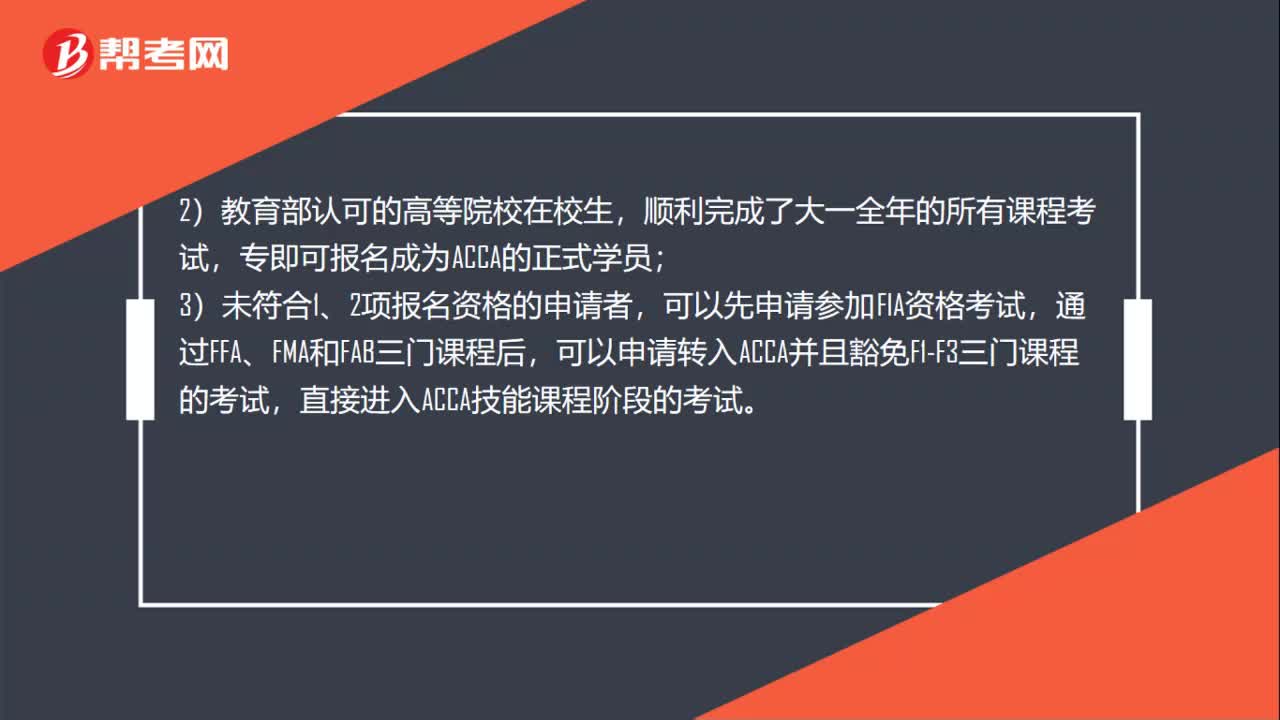 01:03
01:032020-06-04
 01:20
01:202020-06-04
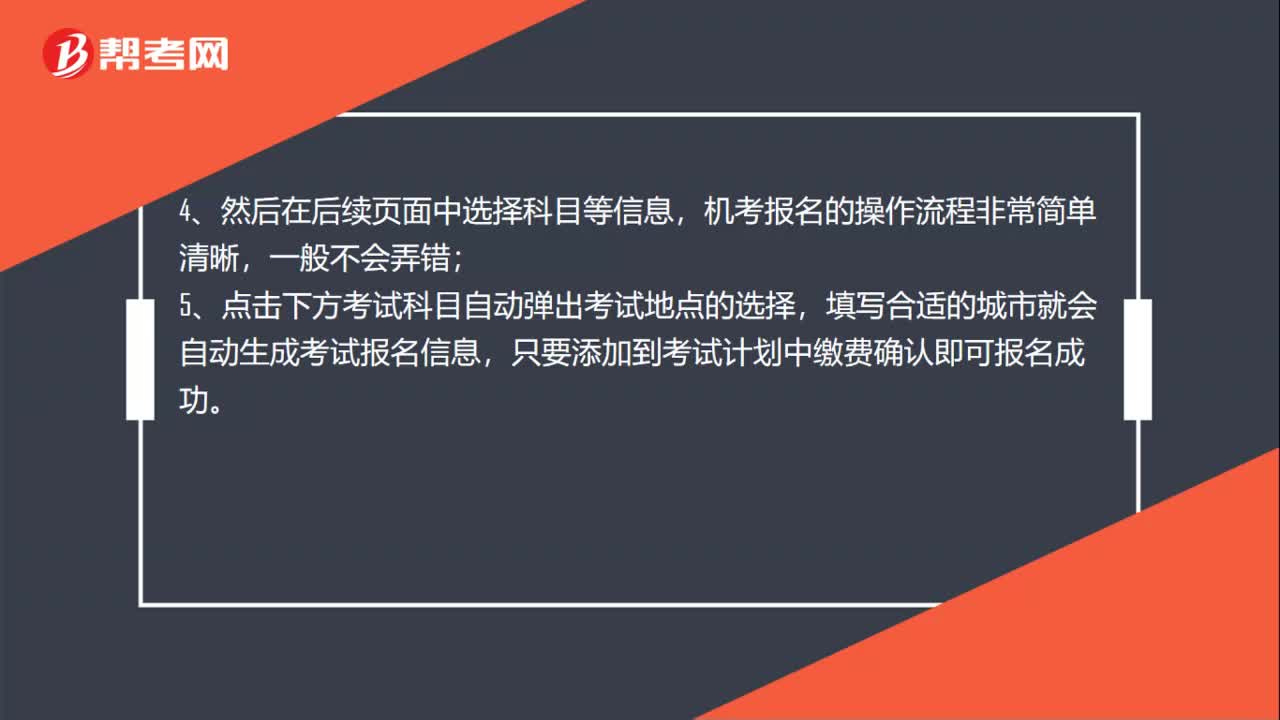 01:21
01:212020-06-04
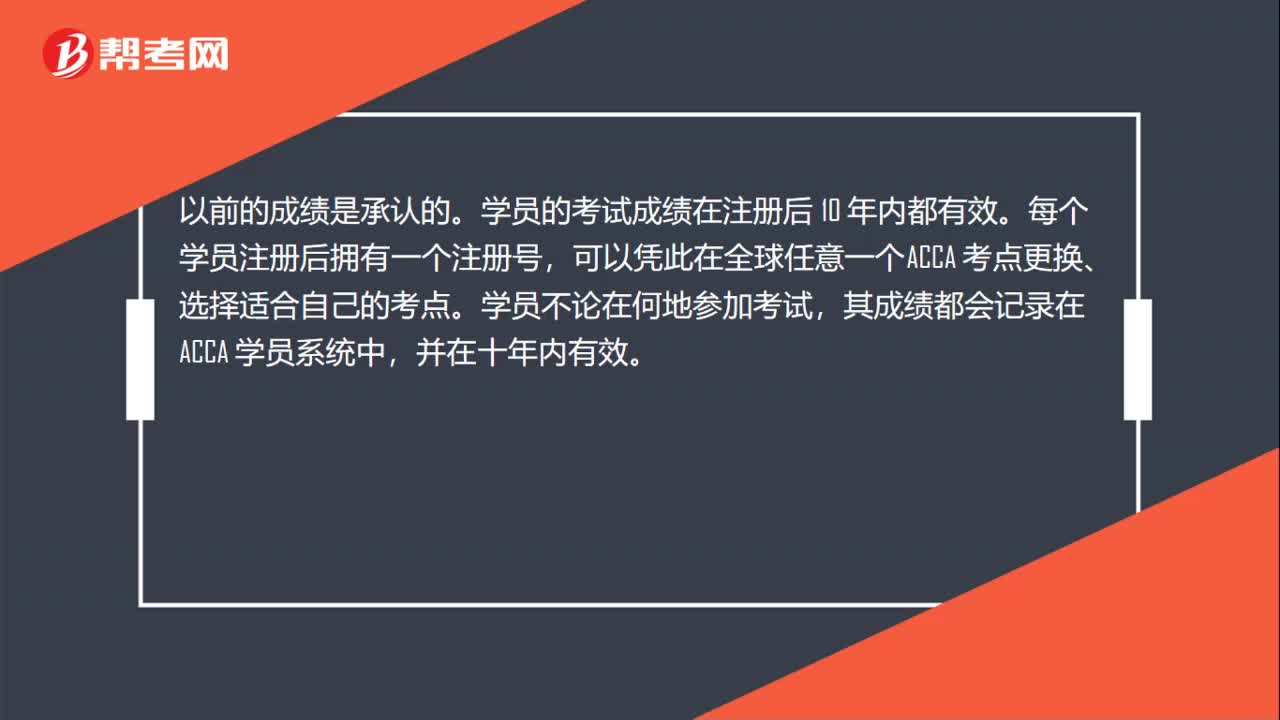 00:34
00:342020-06-04
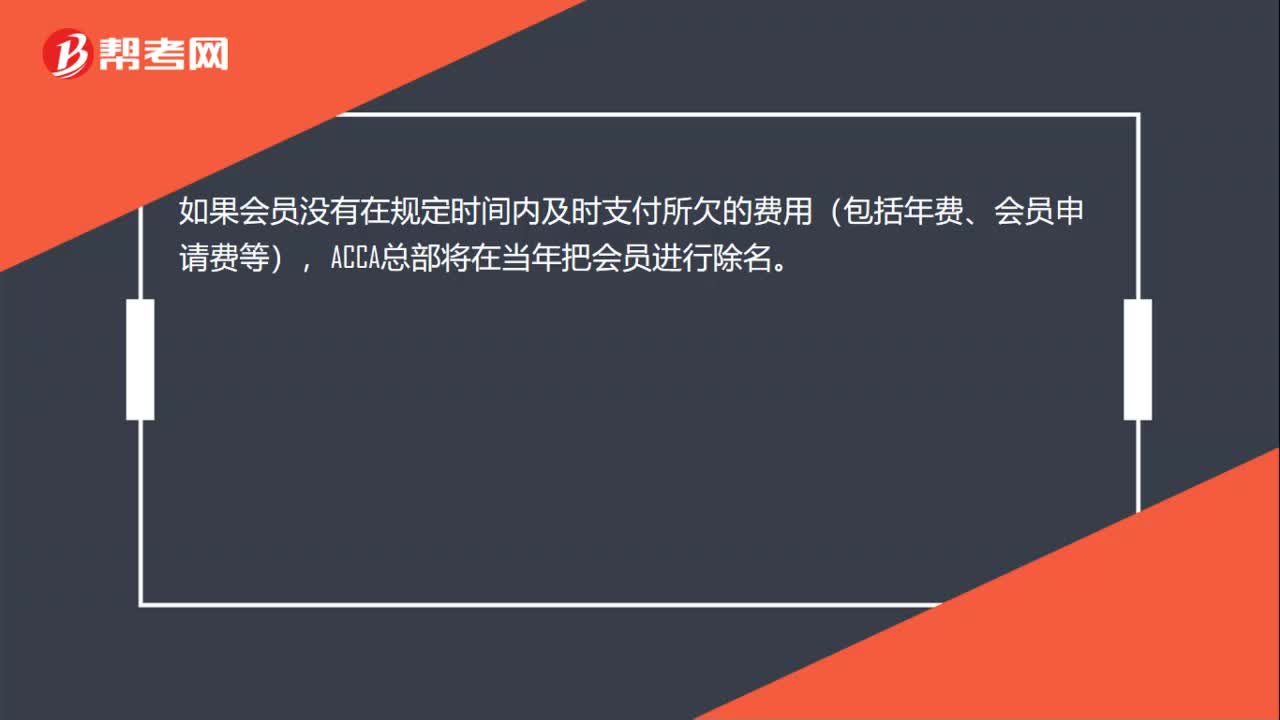 00:19
00:192020-06-04

微信扫码关注公众号
获取更多考试热门资料